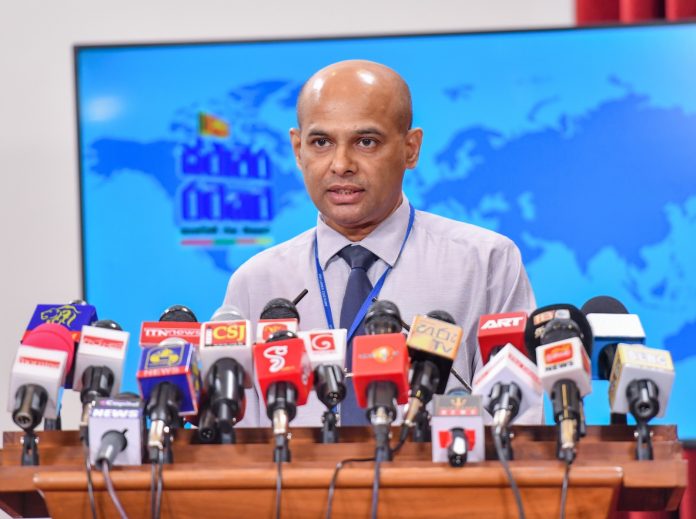Sri Lanka Customs today (8 June) strongly denied allegations that a batch of 323 shipping containers was released without inspection under suspicious circumstances, stating that the cargo consisted solely of industrial goods and raw materials as declared by importers.
At a special press briefing held in Colombo, Customs Media Spokesperson and Additional Director General Seevali Arukgoda said there was no evidence to suggest the containers held anything illegal. “These containers did not contain weapons, drugs, or gold. We thoroughly checked the import documents before release,” he asserted.
The controversy centres around the release of 371 containers on 18 January 2025, of which 309 were cleared through committee approval, and 62 were auto-released by the Customs database. Customs confirmed it has detailed records on all 180 importers involved, including company directors, agents, and container numbers.
Arukgoda explained that the released cargo included plastics, yarn, chemicals, automobile spare parts, animal feed, machinery, pesticides, cement, iron pipes, fertilisers, and timber—goods essential for local industries. Most containers originated from India and China, along with others from Indonesia, Singapore, Hong Kong, Malaysia, Switzerland, South Korea, and the UAE.
Responding to public speculation and political accusations, Arukgoda said: “We have launched a post-clearance audit to verify the contents. The process is being overseen by the Post-Clearance Department, and a high-level committee appointed by the Finance Ministry Secretary is also conducting an investigation.”
He further assured that there was no external interference in the clearance process. “We have provided all relevant data to the Criminal Investigation Department. I can say with absolute certainty that no third party influenced the decisions.”
Addressing the broader practice of cargo clearance, Arukgoda clarified that around 60% of imported shipments are routinely released without physical inspection under a risk-based assessment system. “This is not a new practice,” he said. “Our decisions are guided by risk management protocols, not randomness.”
Customs reiterated its commitment to transparency and cooperation with ongoing investigations, aiming to restore public confidence amid rising scrutiny.





